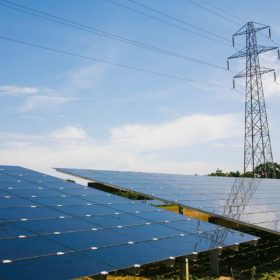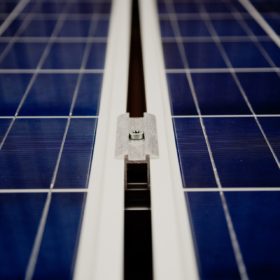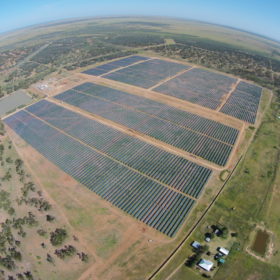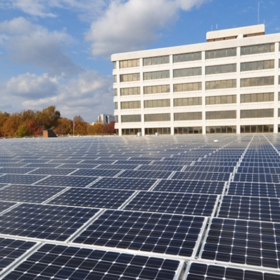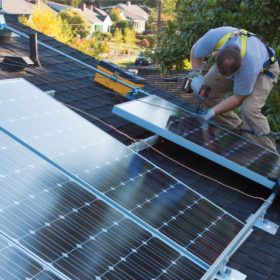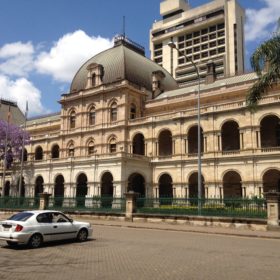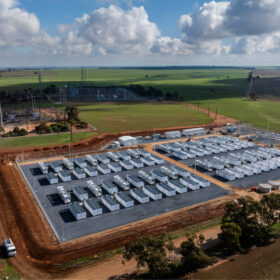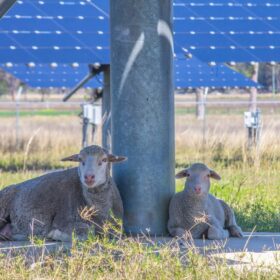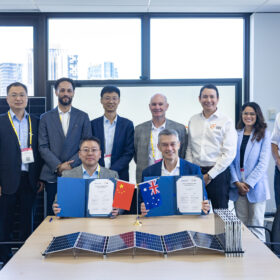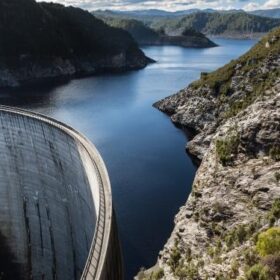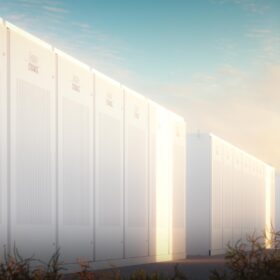Unstoppable power: pv magazine starts new UP campaign for more sustainability
This year, pv magazine is setting a new editorial agenda. Via our program, UP, we will be diving deep into the topic of what it means to be truly sustainable, looking at what is already being done, and discussing areas for improvement. Over the coming weeks, months, and years, we will share our findings across our various digital platforms, in our print magazines, and via our roundtable events and webinars. Are you UP for it?
PV+storage opportunity looms in Asia-Pacific region: WoodMac
Solar-plus-storage could be competitive against gas peaking power plants in Australia within the next five years, as the average solar-plus-storage LCOE across the Asia-Pacific region is set to fall from $133/MWh this year to $101/MWh by 2023, according to a newly released research report.
Global cumulative PV capacity may reach 1.3 TW in 2023, SolarPower Europe says
The European solar trade body expects 128 GW of new PV capacity in 2019, with China likely to bring around 43 GW online and Europe experiencing enough demand to deploy about 20.4 GW. In 2020, global solar demand is expected to reach 144 GW, while in the following three years new PV additions are forecast to total 158 GW, 169 GW and 180 GW, respectively.
Queensland solar installation rules go into effect despite push back
The Queensland government has signed into law a controversial regulation for solar farms larger than 100 kW, which requires mounting, locating, fixing and removal of PV panels at solar farms to only be undertaken by licensed electricians. The move comes despite warnings that the new rules will put hundreds of local jobs at risk and could bring some projects to a standstill.
Sustainable Melbourne Fund takes its mission, and rooftop PV, Australia wide
A new $200 million partnership with Bank Australia has boosted the capability of Sustainable Melbourne Fund to help all Australian commercial and agricultural enterprises become more sustainable. For many businesses, reducing electricity costs and emissions through solar PV installation has been the first project on their list.
Sonnen starts shipping batteries made in South Australia to New Zealand
The German energy storage provider has begun shipping batteries produced in the former Holden factory in Adelaide’s north to New Zealand. Sonnen batteries will be available exclusively through the manufacturer’s local partner, Taspac Energy.
QLD Government’s “new safety code” set to cost solar jobs
The “new safety code” handed down by the Palaszczuk Government last month is set to cost jobs, delaying installations and making some projects unviable – warn installers.
CEFC to allocate up to $95 million for solar-powered, energy efficient homes in NSW
The Australian government’s green bank continues to invest in energy efficient homes for low income families with a new funding granted for solar and battery-powered dwellings in regional New South Wales.
The U.S. surpassed 2 million solar installations
The first million took 40 years, the second million took two years and the third million will arrive two years from now.
Clean Energy Council convenes “emergency roundtable” over Queensland installer rules
The Clean Energy Council is continuing to push back against new laws in Queensland that will compel solar installation work to be carrier out by a licensed electrician for arrays larger than 100 kW. It convened an “emergency roundtable” in Brisbane today to address the new rules.

